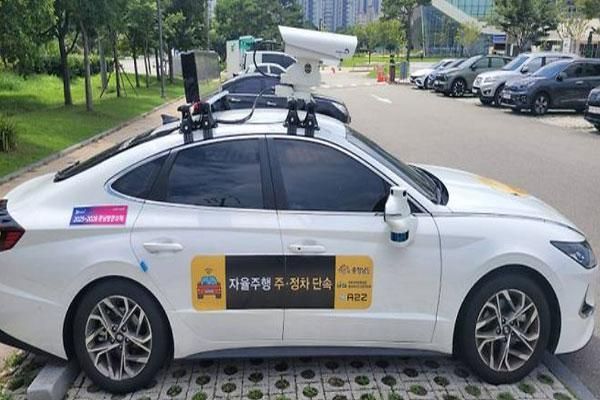More than 100 new self-driving cars will drive in a designated city here as the government is spurring collaborative efforts nationwide to make the industry a global paragon following the United States and China.
The measure is part of an initiative announced on Tuesday by the Ministry of Land, Infrastructure and Transport and other related ministries to boost the country’s global competitiveness in the industry. The government said the country must execute more tests and generate more big data for analysis to reach the industry scale and road testing currently in practice in the world’s two largest economies.
The government said it will designate a local city by early next year and introduce more than 100 autonomous cars there to collect big data from their driving. The measure comes after the government has already deployed 132 self-driving cars across 47 specially designated testing zones nationwide.
The 132 cars have so far altogether driven 13 million kilometers in total. The figures, compared to the U.S. and China, are vastly inadequate. Google’s Waymo has surpassed 160 million kilometers with 2,500 cars and Baidu in China over 100 million kilometers with 1,000 cars, according to the government.
The government said citing global AI service provider GuideHouse that American firms this year have claimed 14 of the world’s top 20 firms in the autonomous driving sector. China claimed four and Korea one.
“The U.S. and China are riding on large-scale capital and countless testing cases. In Korea, however, the industry is still relying on startups and their limited testing,” the ministry said.
An autonomous bus operates around the Gyeongju Hwabaek International Convention Center in North Gyeongsang Province, Oct. 28, during a series of APEC meetings and seminars hosted by the city throughout the month. Korea Times photo by Shim Hyun-chul
The government’s comprehensive agenda includes raising the country’s autonomous driving technology level from current Level 3 to Level 4 according to the U.S. SAE International, a nonprofit science and technology organization for advanced industries like mobility and aerospace. By advancing the country’s conditions for autonomous driving testing environment to the higher level by 2027, legal limitations can be deregulated, testing zones expanded and government supports for research and infrastructure preparation boosted, according to the government.
To improve the country’s testing environment, the government will enable city mayors and provincial governors to authorize designation of the testing zones. The authority has so far been limited to the country’s transport minister every half-year.
To increase the testing and further enlarge its service areas nationwide, the government will starting next year expand autonomous bus services in rural regions with inadequate public transport services. The ministry said the depopulating regions have shown particularly positive feedbacks to the service.
The government has also emulated ongoing practices in the U.S. and China which use original, unaltered video data for research. The measure will deregulate the country’s current rules that limit video data for research purposes to edited videos to hide plate numbers and other personal information of vehicles on the road. The ministry said usage of original video data increases AI’s precision in video recognition by 25 percent.
To support the research into the industry, the government will provide funds for securing graphics processing units for autonomous cars, developing software-defined-vehicles and introducing a new dedicated AI learning center for private firms in the industry by 2029.
“Autonomous driving is physical AI’s key industry. Its global market will show a rapid growth from $187 billion in last year to $6.82 trillion by 2035. This large-scale AI transition project reflects the Korean government's bold regulatory supports for the industry,” the ministry said.











